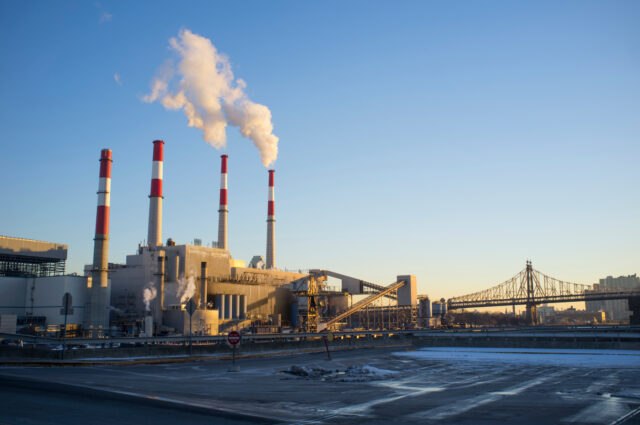Powering the future: uniting sustainability and energy risk management
If the last few years have taught us anything, it’s that the energy market is highly unpredictable. Energy wholesale prices have hit record highs, and combined with climbing non-energy costs and unprecedented global events, there are seemingly no end of shockwaves impacting supply and demand.

If the last few years have taught us anything, it’s that the energy market is highly unpredictable. Energy wholesale prices have hit record highs, and combined with climbing non-energy costs and unprecedented global events, there are seemingly no end of shockwaves impacting supply and demand.
For many organisations, this has made budgeting a constant challenge, especially as the question is no longer if volatility will strike again, but when.
At the same time, expectations around sustainability are growing. Customers are making greener choices, employees want to work for companies with purpose, and regulations are tightening. Every UK business is expected to reach Net Zero by 2050, with some sectors facing earlier deadlines.
Some see this as a challenge, but to me it presents an endless opportunity. By navigating the changing market together, organisations can protect themselves from cost risk while building a more sustainable future.
The reality of today’s market
Wholesale electricity prices have risen by an average of 15% a year over the last five years, with spikes of more than 2,000% at the height of the crisis. But wholesale costs are only part of the picture. Today, around 61% of your electricity bill comes from things like grid charges and balancing costs, and those are forecast to rise further in the coming years.
This means budgets will remain under pressure. In fact, forecasts show that within just two years, energy costs could climb by as much as 83%. A sobering reminder that a clear risk management strategy is a vital preventative tool.
Turning pressure into opportunity
The reality for organisations is that energy risk and sustainability are now closely linked. Put simply, the less reliant you are on grid energy, the less exposed you are to price shocks, and the more progress you make on your pathway to Net Zero.
That’s why the most effective strategies combine cost control with carbon reduction. This joined-up approach usually involves three key steps:
- Reducing waste. From optimising heating and cooling systems to intelligent monitoring to spotlight and manage consumption, eliminating waste reduces both bills and emissions.
- Generating your own. On-site renewables such as solar panels and battery storage give you more control, providing cheaper, cleaner energy.
- Buying better. For any energy you still need from the grid, competitive procurement and risk management protect against market swings, while green supply contracts help you meet sustainability commitments.
Proof it works
One UK manufacturer we’re working with recently followed this approach, with extremely impressive results. By combining solar panels, battery storage, and efficiency upgrades, they cut their reliance on the grid by 68%. Not only did this reduce the organisations carbon footprint, but it also transformed the cost outlook, lowering financial “value at risk” from £3.8m to £1.2m annually.
In other words, sustainability became a powerful tool for risk management, helping the business take control of its future.
A pathway to stability and growth
Energy will always carry some level of uncertainty, but that doesn’t mean your organisation has to be at its mercy. By uniting sustainability with energy risk management, it is possible to:
- Stabilise your energy costs over the long term
- Reduce exposure to unpredictable market swings
- Build resilience and competitiveness
- Strengthen your reputation with customers, employees, and stakeholders
The organisations that are acting now are not only protecting their budgets, but positioning themselves as leaders in the transition to Net Zero.
At Equity Energies, we believe the future belongs to those organisations that treat sustainability as more than a responsibility, but as a strategy for growth, resilience, and competitive edge. If you’re ready to explore your pathway to Net Zero and build energy stability into your future, our team is here to help.
Related Insight
-

Net Zero Pathway
How to prepare your Net-Zero plan
Net-zero isn’t a far off ambition anymore. It’s now a business imperative. With investors, regulators and customers all raising the bar, UK organisations are under…
Find out more -

Net Zero Pathway
Making 2025 count in the countdown to Net Zero.
Hear from our Director of Client Services on how to make it count when it comes to Net Zero 2025 action.
Find out more -

Default category
The missing number; why energy strategy should be on every CFO’s agenda
One thing is becoming increasingly clear: energy is a financial issue. And for many organisations, it represents the missing number in long-term planning. This is…
Find out more